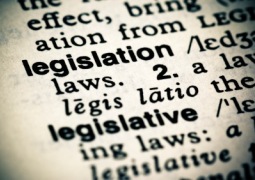
Parliament, Tuesday, 13 February 2017 – Parliament’s Portfolio Committee on Trade and Industry today continued its public hearings on the National Credit Amendment Bill. The Committee resolved to call relevant role-players in the social grants payments system to provide greater clarity on deductions from grant beneficiaries.
Committee Chairperson Ms Joanmariae Fubbs said this resolution was taken after the Committee heard an oral submission from the Black Sash regarding unlawful loans and deductions from grant beneficiaries. The Committee also heard presentations from the Department of Justice and Constitutional Development and the National Treasury.
The Black Sash told the Committee that it has worked closely with the South African Social Services Agency in an attempt to stop unlawful deductions. The Committee heard grant beneficiaries are easy targets for loans that use social grants as guarantees. The Committee also heard that Easypay Everywhere Bank Accounts, also known as the “Green Card”, fuelled indebtedness when they arrived in June 2015. Many loan sharks use this card to provide loans, often with no affordability assessments. The Committee further heard that according to legislation only 10% of a social grant can be deducted on a monthly basis.
Furthermore, the Department of Justice and Constitutional Development raised concerns about the severity of proposed penalties and cautioned the Committee about tempering the penalty to match the relative seriousness of the crime. While the Committee welcomed the Department’s input, it remains concerned that the penalties must be a sufficient deterrent for unscrupulous credit providers and consumers who provides the wrong information.
The proposed Bill makes provision for debt intervention for consumers earning a maximum of R7 500 per month and with less than R50 000 in unsecured debt. In its presentation, the National Treasury together with Eighty20, which conducted research on the targeted credit market, said as the proposed Bill is currently crafted, 16 million loans could qualify for debt intervention. The research shows that 59% of loans to consumers in this earnings category who are able to service their debt may qualify for debt intervention and have their loans extinguished. They noted that only 29% (4.7 million) of these loans are three or more months in arrears.
The National Treasury proposed that the Bill be transformed to provide a limited form of “poor man’s sequestration”, with clear indications about who can apply for this debt intervention, such has those who can under no circumstances afford to pay off their debt. They further proposed that the debt mechanism should provide for ongoing and continuous relief to chronically over-indebted South Africans.
ISSUED BY PARLIAMENTARY COMMUNICATION SERVICES ON BEHALF OF THE CHAIRPERSON OF THE PORTFOLIO COMMITTEE ON TRADE AND INDUSTRY, MS JOANMARIAE FUBBS
For media enquiries or interviews with the Chairperson, please contact the Committee’s Media Officer:
Name: Rajaa Azzakani (Ms)
Parliamentary Communication Services
Tel: 021 403 8437
Cell: 081 703 9542
E-mail: razzakani@parliament.gov.za

